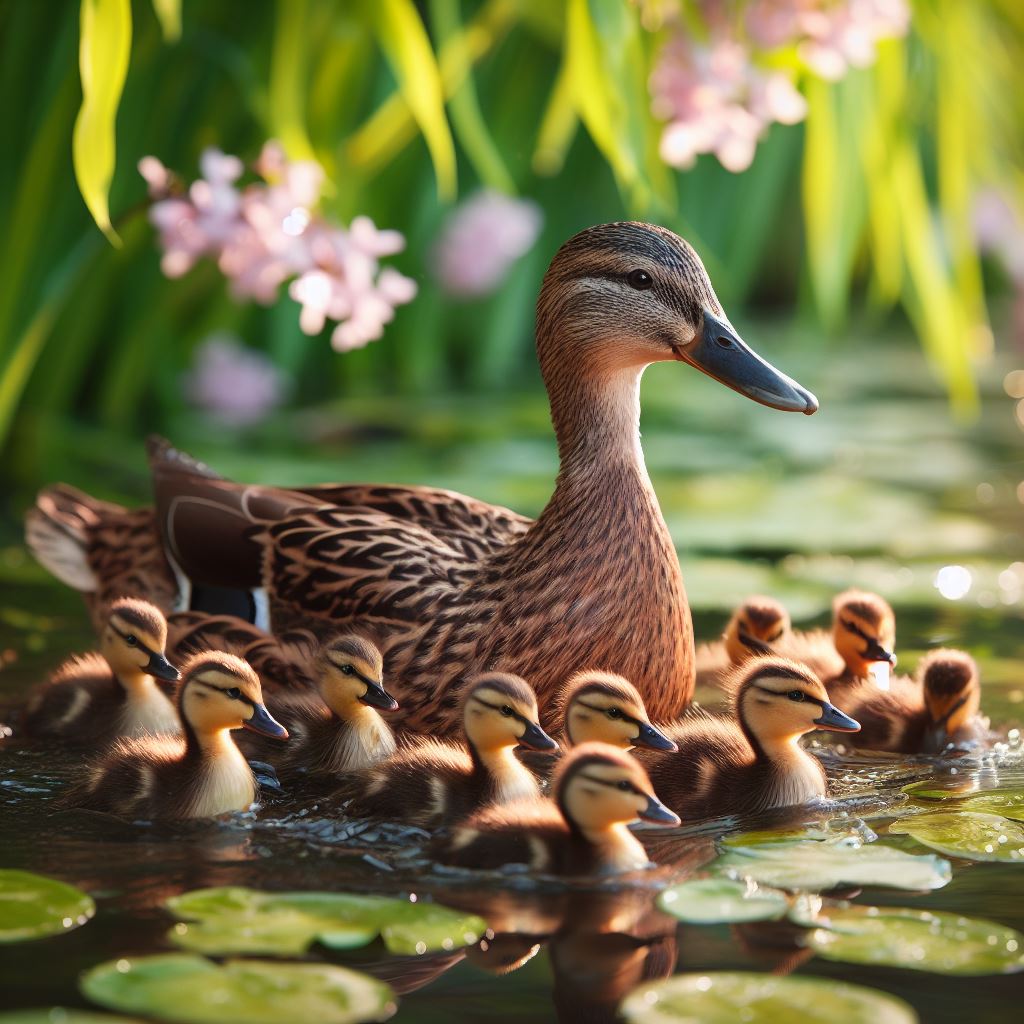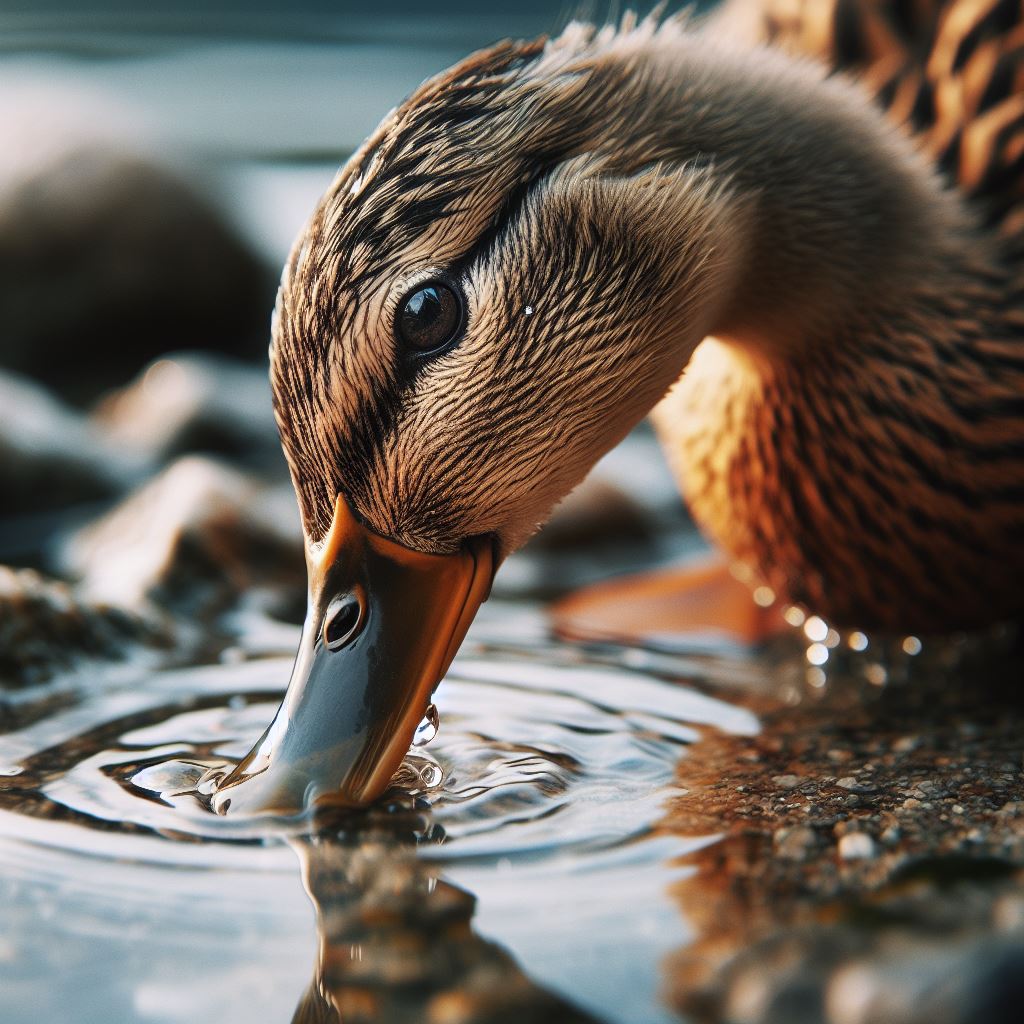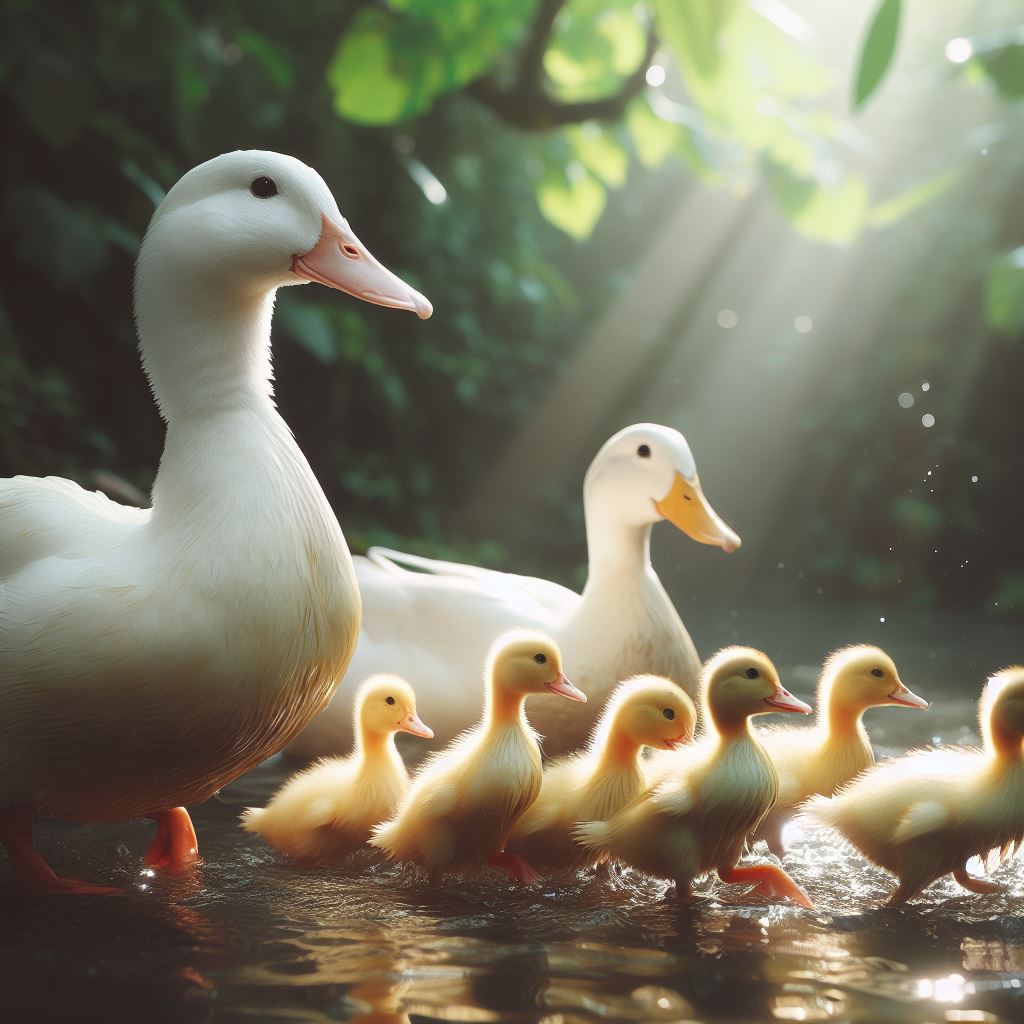What To Feed Wild Ducks In Ponds?

Table of content:
Ducks are a beloved sight at parks and ponds across the world. However, well-meaning people often feed ducks and geese inappropriate foods that can cause them harm. This article will discuss the proper feeding of wild ducks, their natural diets, and how to encourage healthy duck populations.
The Problem With Feeding Ducks Bread and Snacks
Many people enjoy feeding ducks by tossing slices of bread or crackers into ponds. Unfortunately, these snack foods provide little nutritional value for ducks.
- Feeding ducks human foods can lead to:
- Malnutrition
- Disease
- Dependency
- Overpopulation and pollution from too much duck waste
- Water quality deterioration from excess nutrients
Bread and crackers fill up ducks without meeting their nutritional needs. Ducks that rely too heavily on poor quality foods can suffer from:
- Stunted growth
- Deformities
- Lowered immunity to disease
Rotting, uneaten food also pollutes ponds. As duck and goose numbers grow from easy feeding access, too much waste can lead to:
- Algal blooms
- Loss of oxygen
- Fish kills
Overcrowded habitats also create problems, as native species get pushed out by hyper-abundant ducks and geese.
To keep ducks healthy while avoiding environmental issues, it’s vital to know their natural diets and best feeding practices.
 What Do Ducks Eat Naturally?
What Do Ducks Eat Naturally?
Wild ducks fill an ecological niche as omnivores feed on a diverse menu of plant and animal materials. Different duck species have specialized feeding behaviors and dietary preferences. But most rely on similar sources, including:
Grains and Grass Seeds
- Barley
- Wheat
- Corn
- Millet
- Wild rice
Aquatic Plants
- Wild celery
- Tubers
- Algae
- Water lilies
- Bur Reed
- Wild rice
Aquatic Invertebrates
- Snails
- Larvae
- Insects
- Small crustaceans
Dabbling ducks like mallards feed mainly on vegetation and small invertebrates found in shallow waters by tipping tail-up to forage along the bottom.
Diving ducks like canvasbacks harvest plants and invertebrates from deeper waters, plunging their heads completely underwater to feed.
Fish-eating mergansers swim and dive actively pursuing small fish, their main prey.
Supplying a balanced mix of these plant and animal foods allows wild ducks to meet their year-round nutritional requirements for:
- Growth
- Molting
- Migration
- Breeding
- Raising ducklings
 How To Feed Wild Ducks Properly
How To Feed Wild Ducks Properly
Ducks and geese that rely excessively on human feeding often become conditioned to inappropriate foods. However, it is possible to provide high-quality nutrition in ways that encourage balance with the wild ecosystem. Here are some best practices when feeding ducks:
Choose Healthy Foods
Provide a mix to meet nutritional needs:
- Insect-based feeds
- Chopped lettuce/water veggies
- Vegetable trimmings
- Cracked/whole corn
- Oats, barley or wheat
Avoid bread, chips and crackers low in nutrition.
Feed in Small Amounts
Scattering small handfuls of food prevents overfeeding and conditioning ducks to abandon natural foraging.
Feed on Platforms Above Water
Elevated platforms allow ducks to remain in the water while feeding. This supports healthy digestion and avoids contaminating water with rotting food particles.
Spread Out Feedings
Schedule multiple small feedings daily instead of dumping large amounts infrequently.
Feeding Ducks by Species
| Species | Dietary Notes |
|---|---|
| Mallards | Prefer bugs, plants from wetland edges |
| Wood ducks | Favor acorns, fruits and seeds from woodland habitat |
| Canvasbacks | Dive for plants; provide lettuce/water veggies |
| Mergansers | Pursue small fish and aquatic life |
Varying offerings help provide for differing dietary strategies.
Conclusion
Ducks and geese hold a special appeal for nature lovers. Keeping wild ducks healthy requires an understanding of their natural foods and wise feeding practices.
Offering balanced nutrition encourages vital habitat conservation efforts. Thoughtfully feeding ducks can provide enjoyment for generations to come.
Welcome. I’m Adreena Shanum, the proud owner of this website, and I am incredibly passionate about animals, especially poultry. I founded adreenapets.com as a labor of love, stemming from my desire to share my knowledge and experiences with poultry enthusiasts worldwide.




